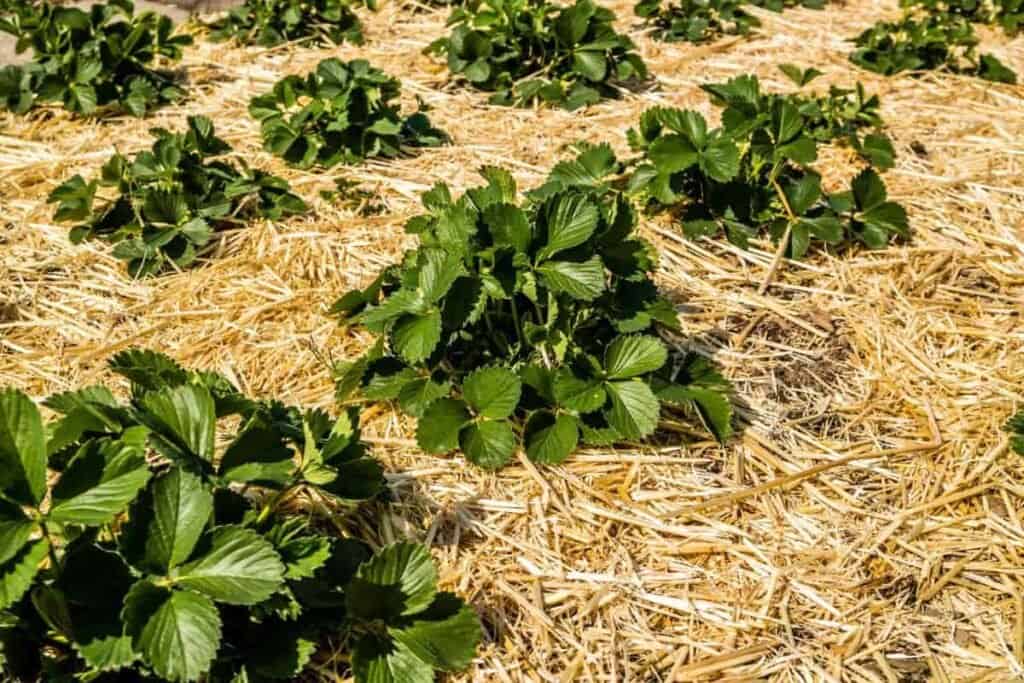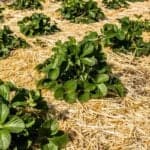Strawberries benefit from mulching with clean straw.
- Place, the covering over the plants so it settles to a depth of about 3” inches. If the wind blows strong in winter, hold the mulch with a chicken wire covering.
- Put mulch on strawberries after the first light frosts in fall, but before severe frosts. Applying mulch too early can do harm.

Raspberry: Susceptible for Winter Injury
Raspberry canes are susceptible to winter injury. Often the greatest damage occurs when a Chinook or warm-up comes during the winter months.
The canes break dormancy readily and soon succumb to renewed winter cold. The best protection is to cover the entire canes with soil in late fall.
Old canes that bore this summer are first removed and then the young canes are laid down and covered.
Covering of Cane Tips
Where there is good snow cover, only the cane tips need to be covered. The snow will protect the remainder of the canes.
Lifting of Bulbs and Roots
Farther south where winter temperatures are not so severe such safeguards are not necessary.
It is time to lift bulbs and roots of gladiolus, dahlias, and cannas.
- Remove the tops.
- Allow bulbs and tubers to cure at fairly warm temperatures for several days in a well-ventilated shed.
- Clean and place them in cooler storage for winter.
- Dusting with Sevin and a fungicide will prevent the build-up of insects and diseases in storage.
While it was good to reduce the watering of most perennial plants in late summer, it is just as important after plants show maturity that they go into winter with a good moisture supply in the soil.
Winter Injury For Evergreens and Other Deciduous Trees
Evergreens and many deciduous trees may show winter injury as a result of going into the winter too dry. So a good watering of perennial plants in fall, after maturity has occurred, is important in helping them survive the winter.
New Petunia Varieties
Check with your local nursery if you’re looking for new petunia varieties for next year.
The fact that a variety performs well in one locality does not mean it will do well elsewhere, nor that it will perform as well in succeeding years.
Several years of testing in various areas are necessary to be assured of the adaptability of varieties.
This holds for vegetables, fruits, and flowers.
Trial Planting For New Varieties
Gardeners should grow proven varieties and make only trial plantings of new things until assured the variety will perform well in their area.
State colleges or universities often have lists available of recommended varieties of fruits and vegetables and sometimes flowers.
These can usually be secured through your local county extension offices. It is well to follow this variety of suggestions.
42480 by Leonard A. Yager
